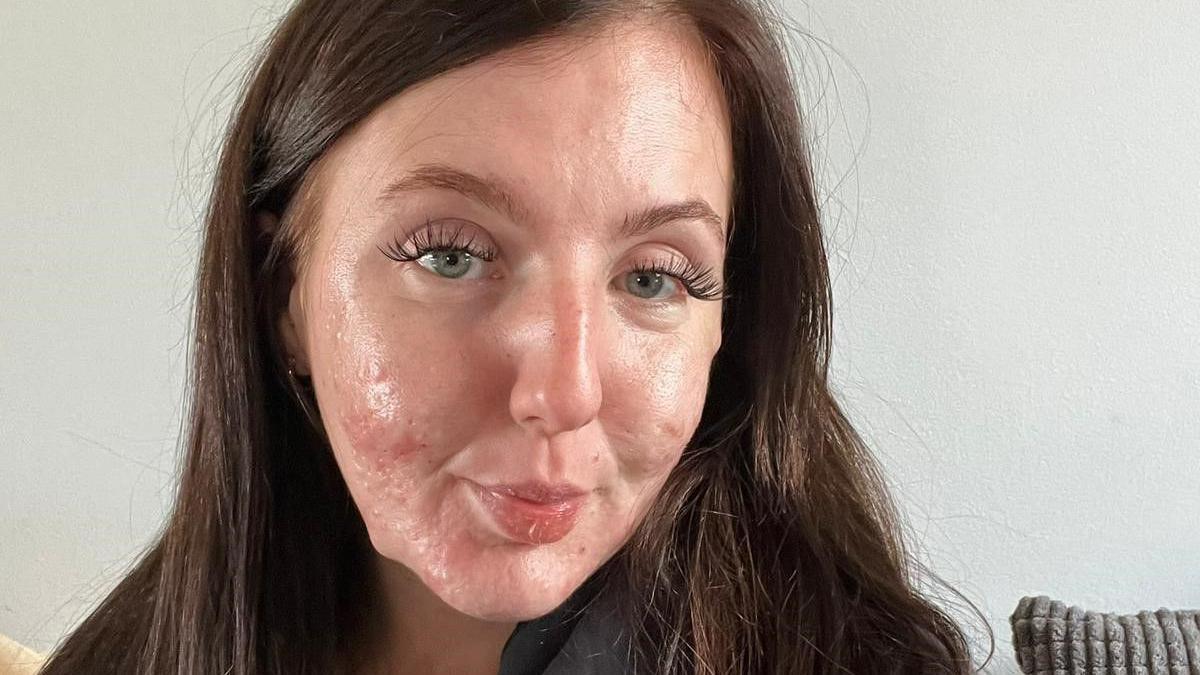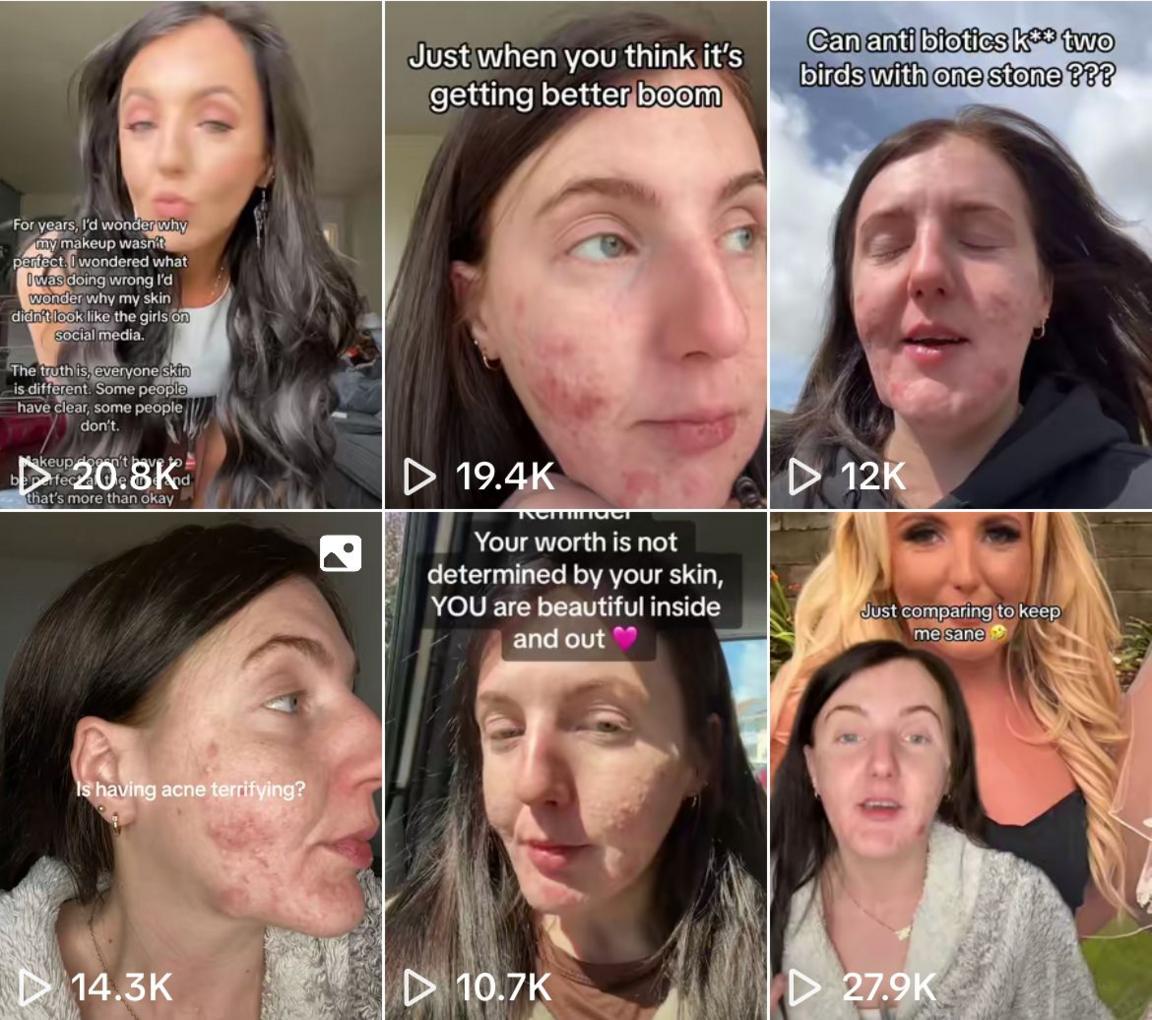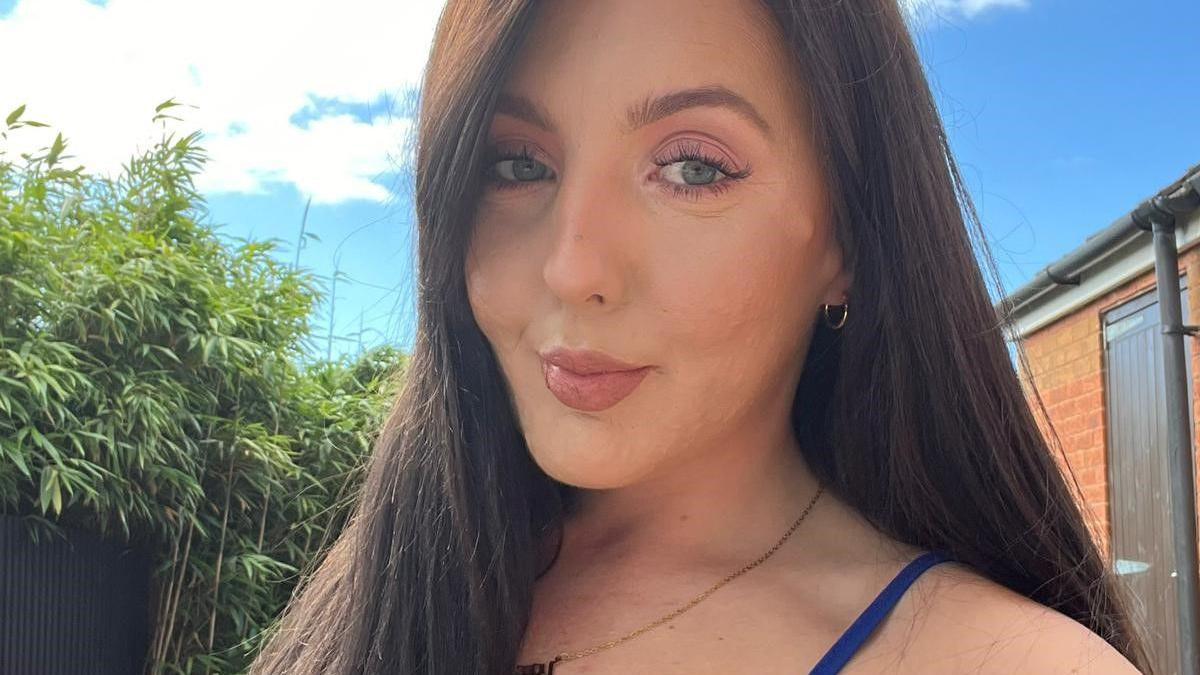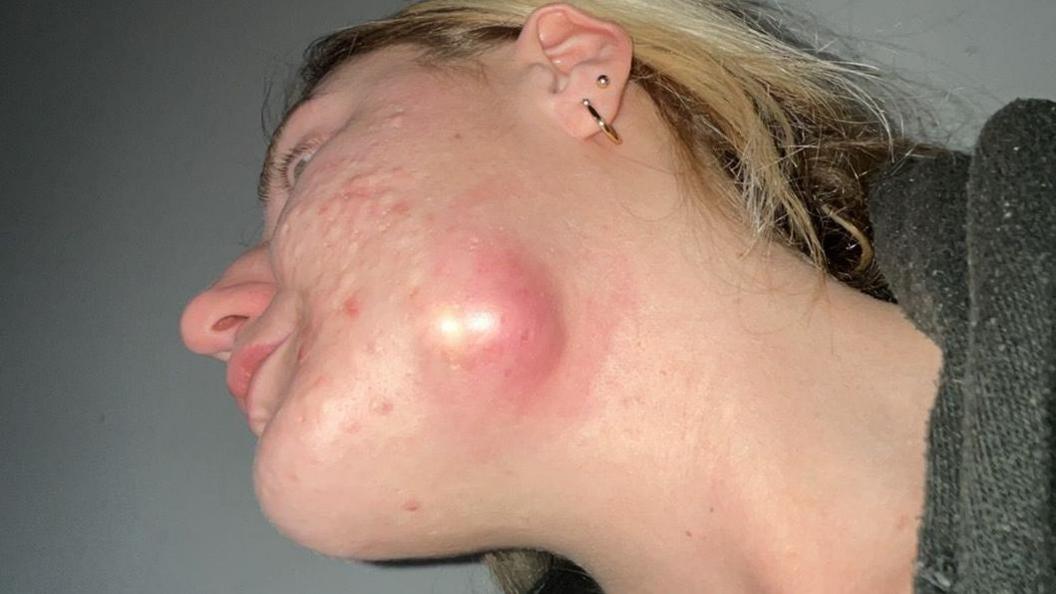Acne fighter films her skin journey to help others

Despite hate comments and knockbacks, Ashlee continues to use her platform as a skin diary
- Published
A woman who has had acne for more than 13 years has been documenting her journey to clear skin in the hope of helping others.
After years of hiding her skin behind beauty filters and make-up, Ashlee Crumpton, 27, has built up almost 30,000 followers on TikTok from sharing her unfiltered skin.
Ashlee, from Bridgend, has been on acne medication isotretinoin, external for more than a year, and while her acne is yet to completely clear, her spirit is undeterred.
"I feel free not having to hide it anymore, posting has really helped me," she said.
Influencer wants more support for people with acne
- Published5 February 2022
Sisters tell of years searching for health answers
- Published18 September 2024
Acne is a skin condition that causes spots, external and oily skin that is sometimes hot and painful to touch.
While it is most common in teenagers and young adults, about 95% of people aged 11 to 30 are affected by acne to some extent, according to the NHS.
Isotretinoin, also known as roaccutane, is a form of vitamin A that is used to treat severe cases that have not responded to other treatments, including antibiotics.
Ashlee first started experiencing acne when she was 14, but after years of trips to the doctors trialling different antibiotics and creams, she said she had had enough.
"It got to the point where the cysts started growing under my skin and deforming the shape of my face, so I was put through to a dermatologist," she said.
From there, Ashlee went on to vlog her journey on the prescribed drug in a series of TikTok videos, offering a raw insight into the mental and physical side effects of the medicine.
"Having acne can be really lonely," she admitted.
"But before I went on the medication, watching other people who shared their experience really helped me, so I thought why not do the same?"
TikTok: Acne influencer terrified of people seeing her skin
There are several common side effects of taking the medication, such as dry skin, eyes, nose, lips, mouth and throat, as well as headaches, and pain in the joints and muscles.
High doses can also sometimes cause changes in behaviour, such as depression, which often dissuades people from starting treatment, according to campaigners.
Many have long called for teenagers not to be prescribed the drug following a number of cases - including those of young people who took their own lives.
The mother of 15-year-old Annabel Wright, who took her life last year, said proposed safety measures were just paying "lip service".
These were suggested by the Commission on Human Medicines, external, and included tighter controls on prescribing to under-18s by requiring a sign-off by two prescribers - usually doctors - when the medicine is first prescribed to people aged 12 to 18.
It also recommended families should be given better information, with patients monitored better.
The commission also said the drug was an effective treatment for cases of severe acne which had not responded to usual treatments.
Ashlee said despite being aware of the risks, it had been hailed as a "miracle drug" which changed lives, and it was her last resort.
Her dosage has been steadily increased over the year to help manage the symptoms, and despite "having her days", Ashlee said sharing her journey online really helped her feel supported.

Ashlee has used social media to document her journey over the last 12 months
"People often see people with acne and their first thought can be to say her diet isn't good, she doesn't wash her face, she doesn't drink water, but they don't understand," she said.
"Those with acne understand that's not the case."
Ashlee said hate comments are to be expected, "people will call me 'pizza face' but I don't let it get to me, I try to laugh them off", she said.
For the most part, Ashlee gets messages to say how much her videos have helped viewers who relate to her, with followers rallying around her with words of encouragement.
"It is such a strong community of acne girls," she said.

Ashlee says she feels "free" in sharing her journey unfiltered online
What causes acne?
Episodes of acne can be hereditary and also occur as a result of hormonal changes during the menstrual cycle or pregnancy.
Contrary to common misconceptions, there is no evidence that poor hygiene can cause acne.
In fact, cleaning the skin does not help to remove blockages of the pores which cause acne, according to the NHS website.

Cystic acne can cause painful, pus-filled spots to form deep under the skin
Because of societal pressures, Ashlee was not always open about her experience with acne, and she admitted beauty filters used to be her ally.
"Whether it was beauty filters or editing apps, any smoothing tool would do," she laughed.
And before the filters, Ashlee said her makeup, hair, and even how she posed was planned out to hide her skin, but that is very much in the past.
She added: "I don't care now, and it feels so nice not to worry. I feel free.
"I would tell anyone with acne that it doesn't define you, it doesn't make you less beautiful and you should love yourself.
"Even if you have to fake it until you make it."